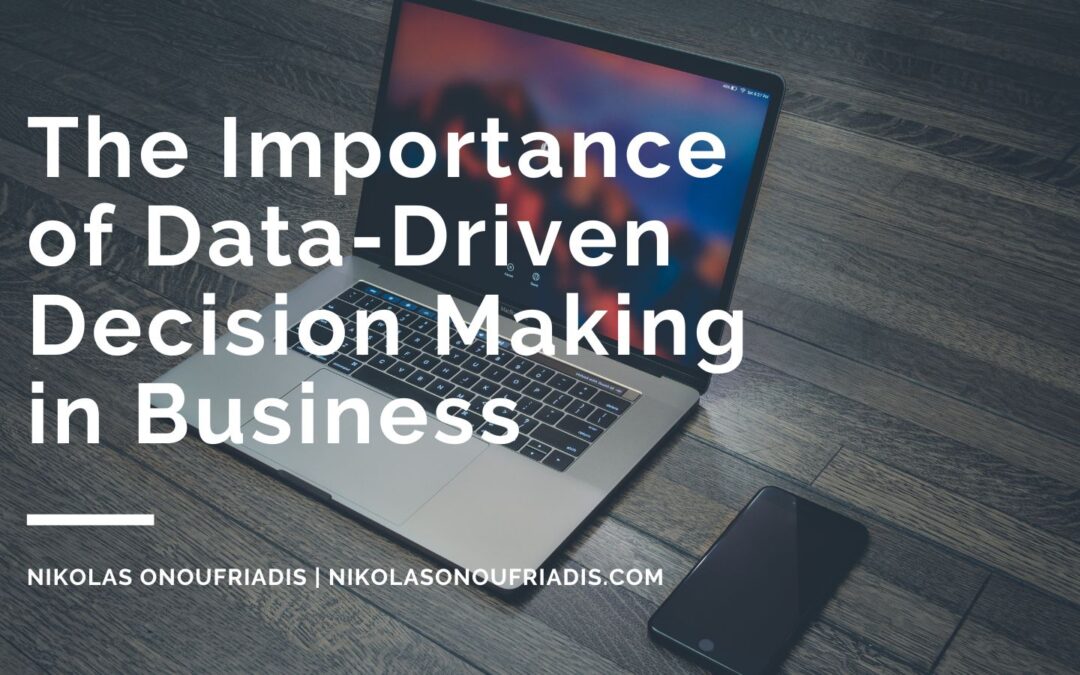In today’s fast-paced business environment, making quick, informed decisions relies on data-driven decision-making. By using data to inform business decisions, organizations can make more informed and effective choices, leading to increased profitability and long-term success.
In many sectors, data-driven decision making is becoming more and more significant since it enables businesses to take more sensible and efficient decisions. Listed below are a few sectors that might profit from data-driven decision making:
Healthcare: Data-driven decision making may assist practitioners in the healthcare sector in enhancing patient outcomes, lowering costs, and better allocating resources. In order to forecast patient risk factors, discover patterns in patient health outcomes, and improve treatment strategies, for instance, healthcare institutions may utilize data.
Banking: Data-driven decision making may enable the banking sector to better manage risk, boost profitability, and improve client experiences. Financial firms may utilize data, for instance, to spot trends in consumer behavior, create specialized marketing campaigns, and make better loan judgments.
Manufacturing: Data-driven decision making may assist to boost production, decrease waste, and improve efficiency in the manufacturing sector. For instance, firms may utilize data to manage supply chain operations, monitor equipment performance, and enhance quality control procedures.
Retail: Data-driven decision making may enhance consumer experiences, boost sales, and improve inventory management in the retail sector. Retailers may utilize data, for instance, to evaluate consumer behavior, customize marketing initiatives, and enhance pricing policies.
Technology: Data-driven decision making may improve product development, improve user experiences, and boost customer retention in the technology sector. Tech corporations, for instance, may utilize data to pinpoint consumer preferences, evaluate brand-new features, and enhance product design.
Objective Decision Making
One of the most significant benefits of data-driven decision-making is that it removes subjective biases from the decision-making process. Instead of relying on gut instincts or personal opinions, data-driven decision-making uses objective data to inform business choices. This leads to more accurate and consistent decision-making, reducing the risk of costly mistakes.
Improved Efficiency
Using data to inform business decisions can also lead to improved efficiency. By analyzing data, organizations can identify areas to streamline processes, reduce waste, and optimize resources. This can help businesses save time and money, leading to increased profitability.
Better Customer Understanding
Data-driven decision-making can also provide organizations with a better understanding of their customers. Organizations can identify trends, preferences, and behaviors that can inform marketing, product development, and customer service decisions by analyzing customer data. This can lead to better customer experiences and increased customer loyalty.
Competitive Advantage
Organizations that use data to inform their decision-making are better positioned to stay ahead of the competition. By analyzing market trends, customer data, and industry data, businesses can identify emerging opportunities and threats, allowing them to make informed decisions that give them a competitive advantage.
Improved Risk Management
Data-driven decision-making can also help organizations better manage risk. Businesses can identify potential risks and develop strategies to mitigate them by analyzing data. This minimizes negative impacts on the company.
data-driven decision-making is essential to staying ahead of the competition in today’s environment. By using data to inform business decisions, organizations can make more informed and effective choices, leading to increased profitability, better customer understanding, improved efficiency, a competitive advantage, and enhanced risk management. Now is the time to start if you still need to use data to inform your business decisions.

